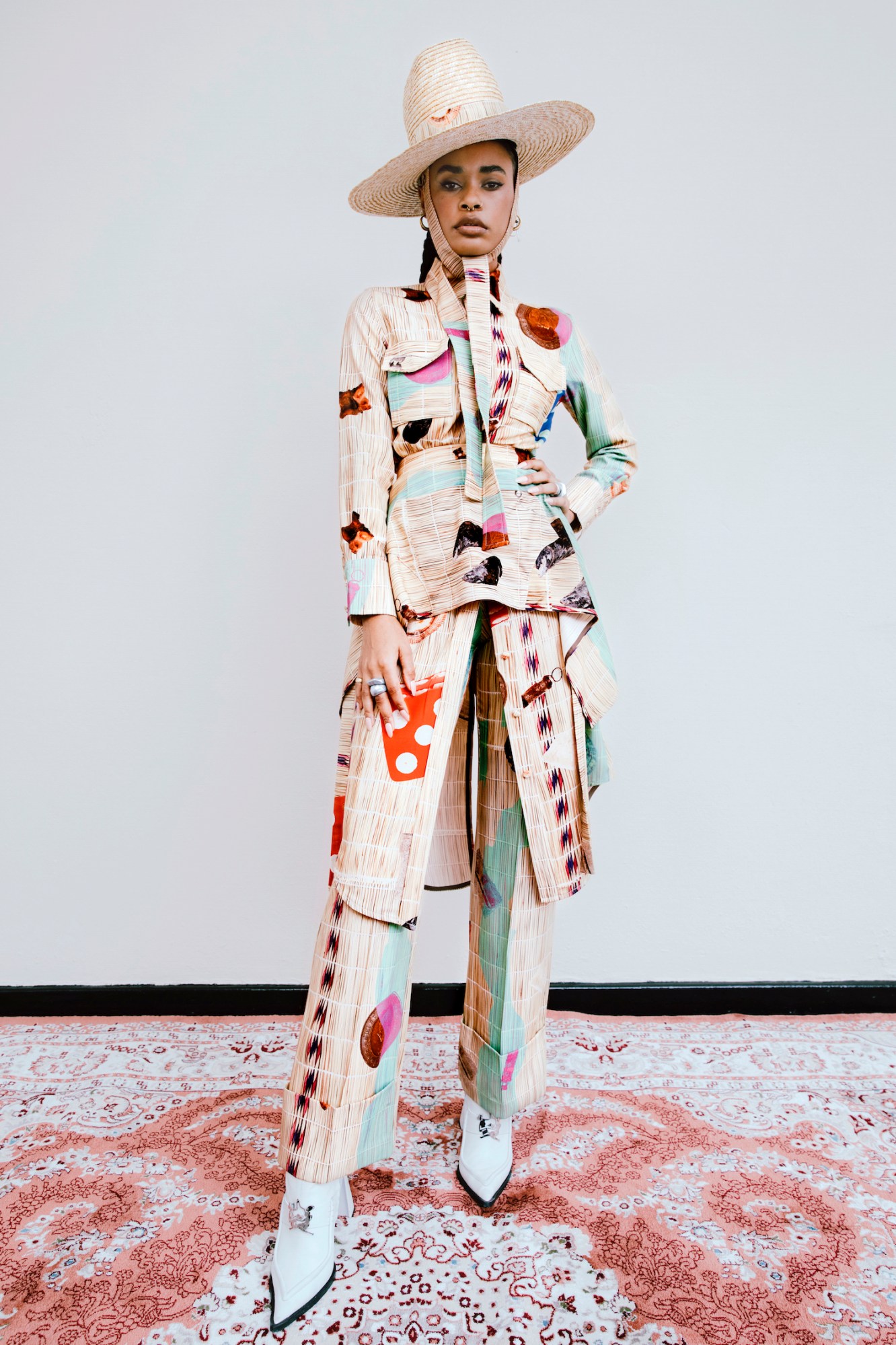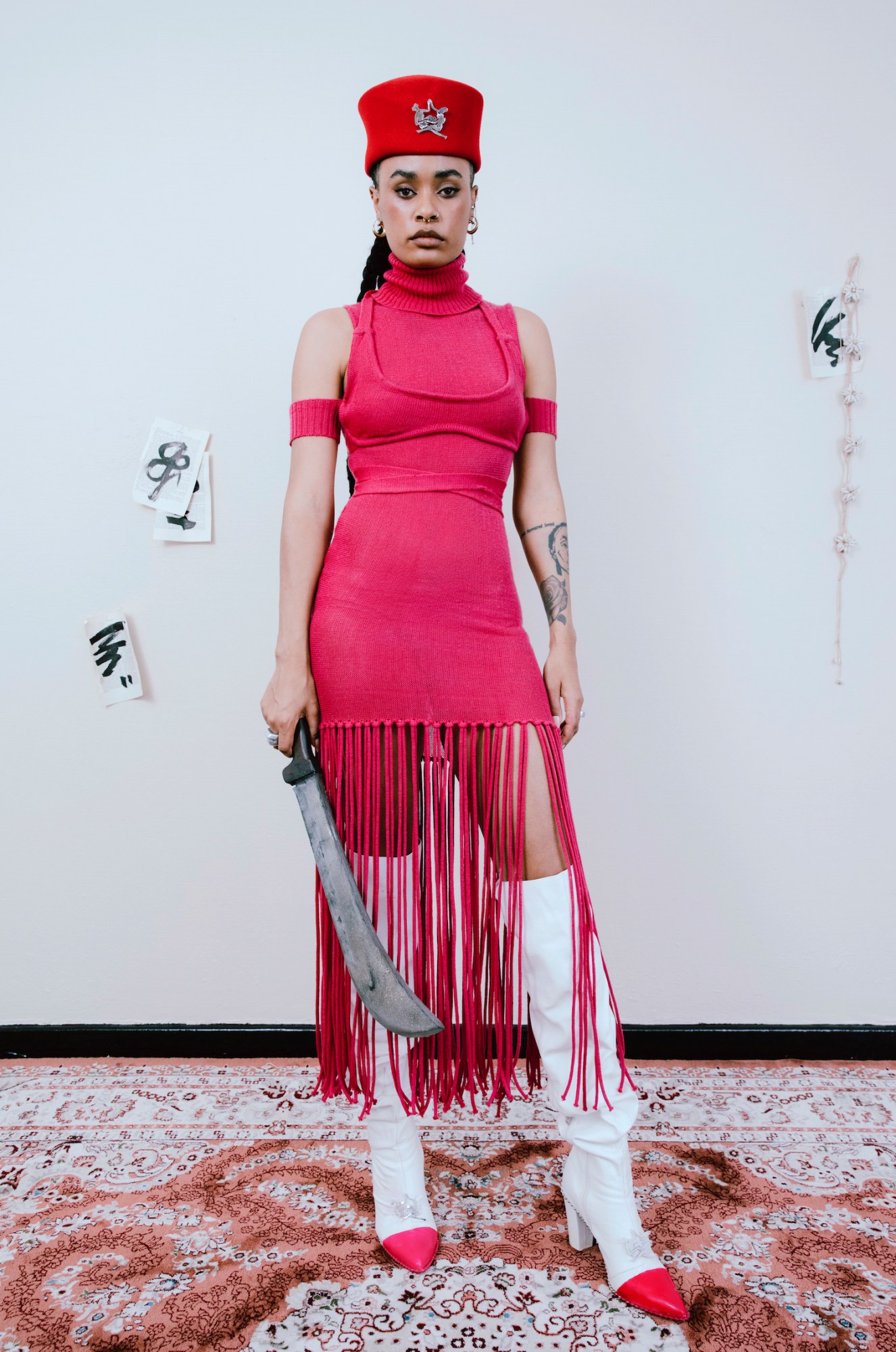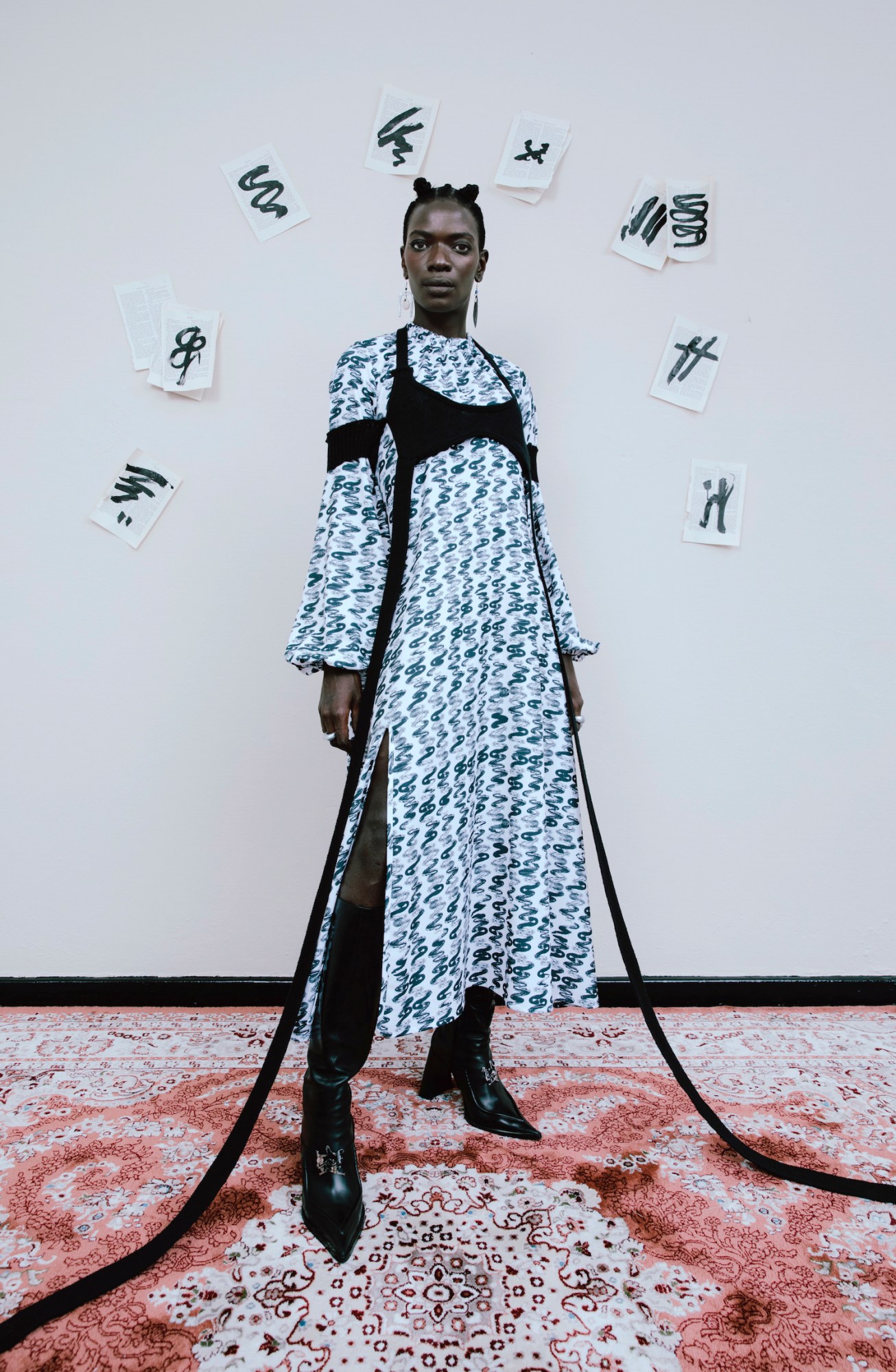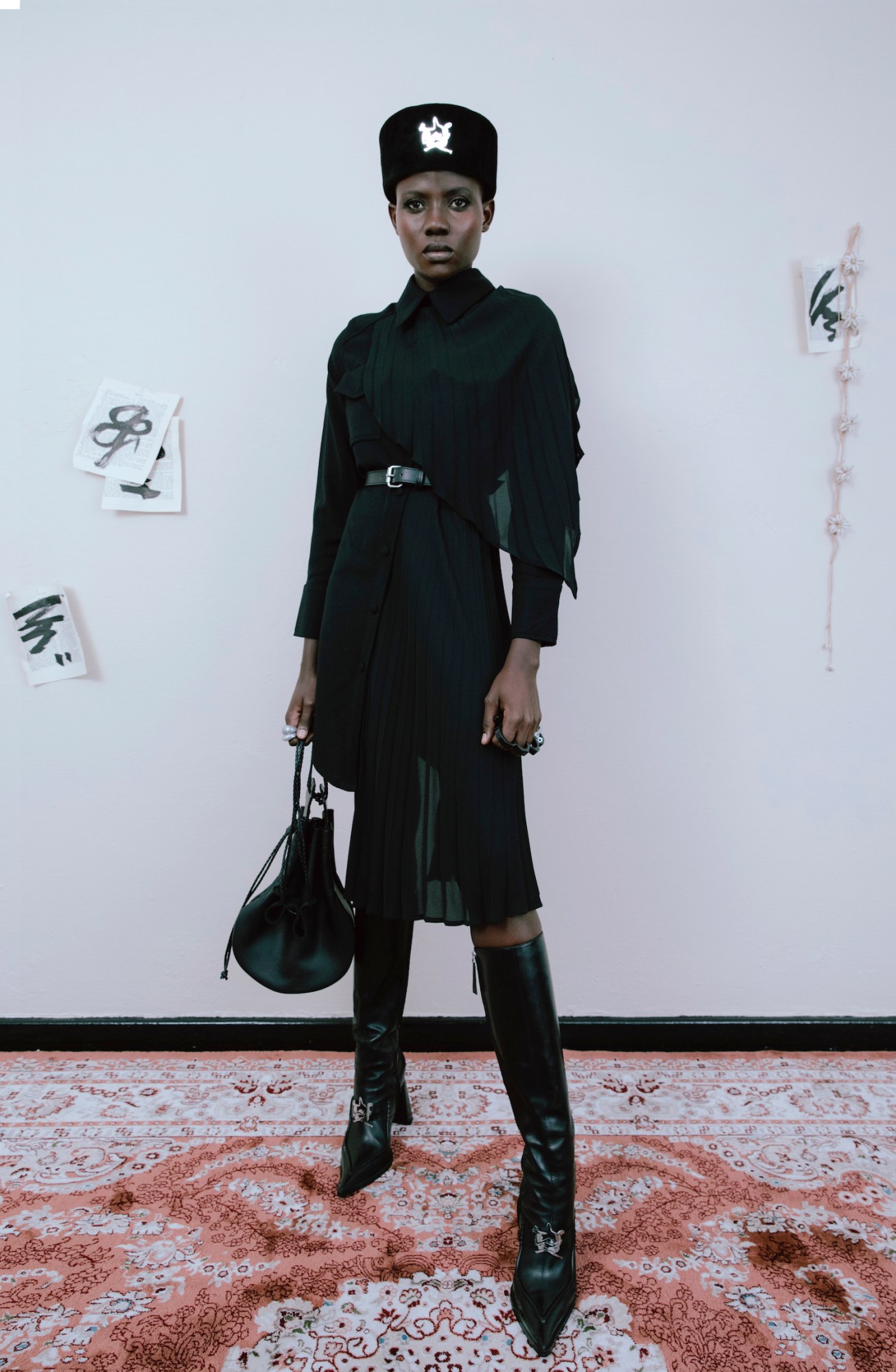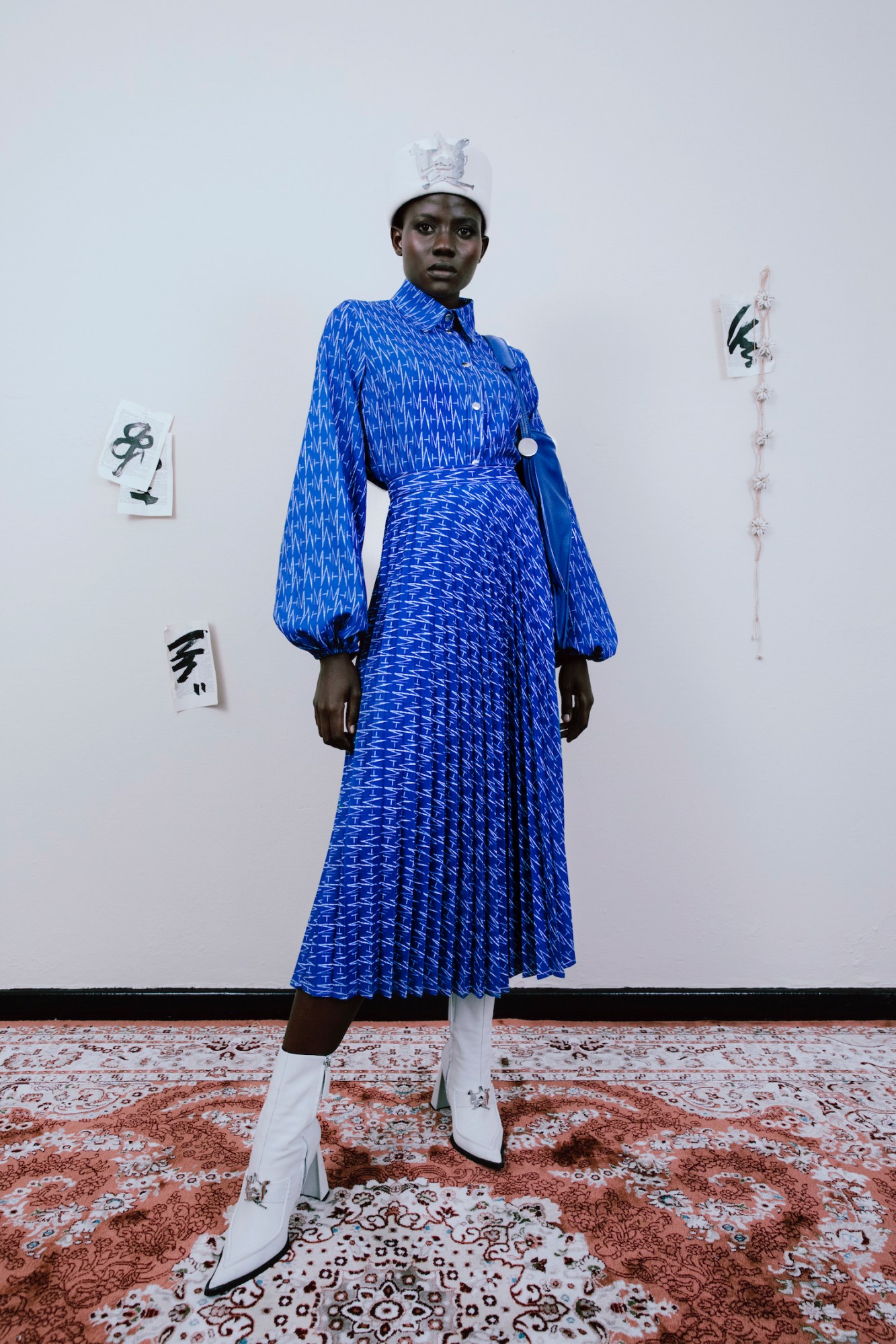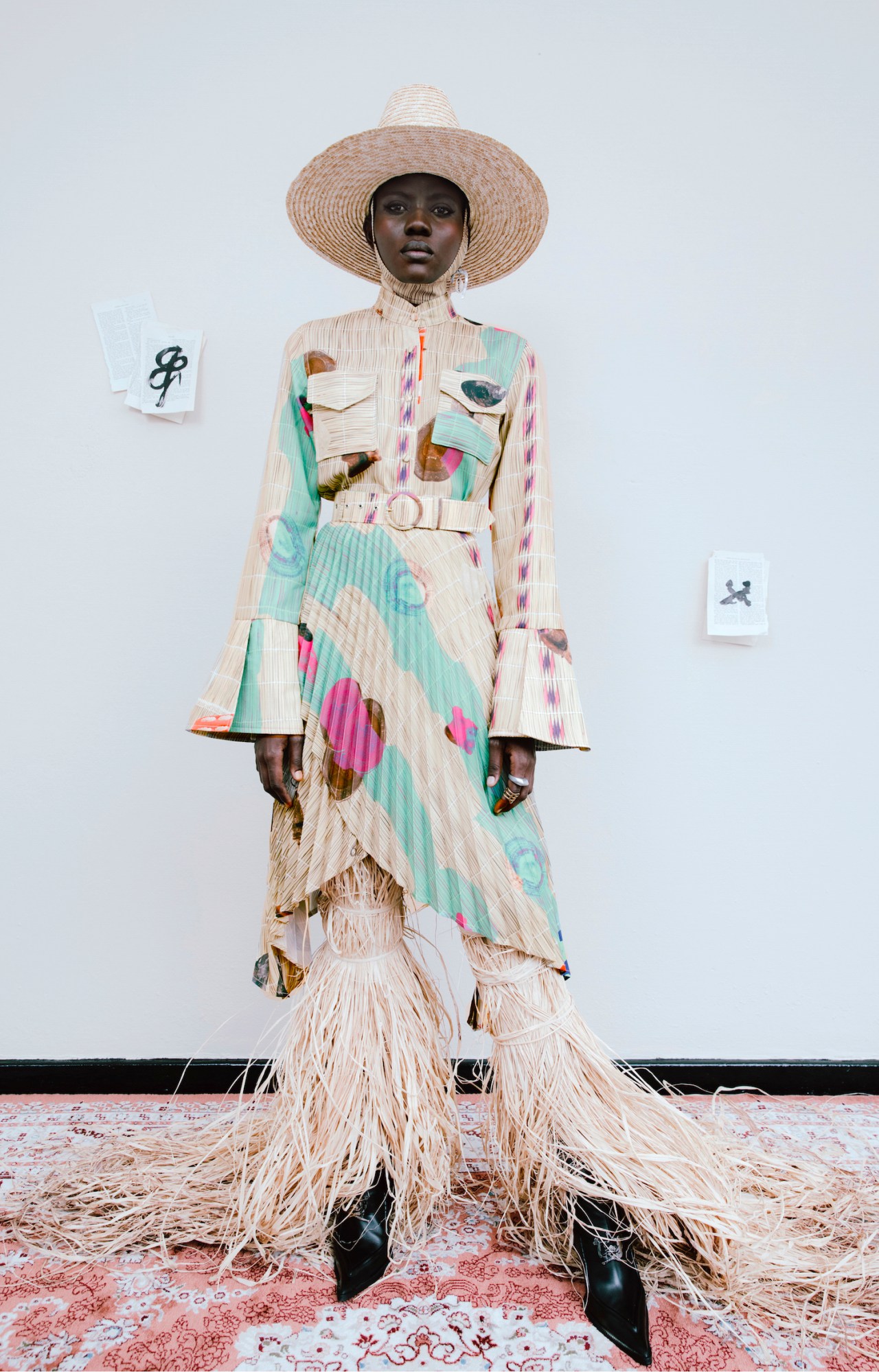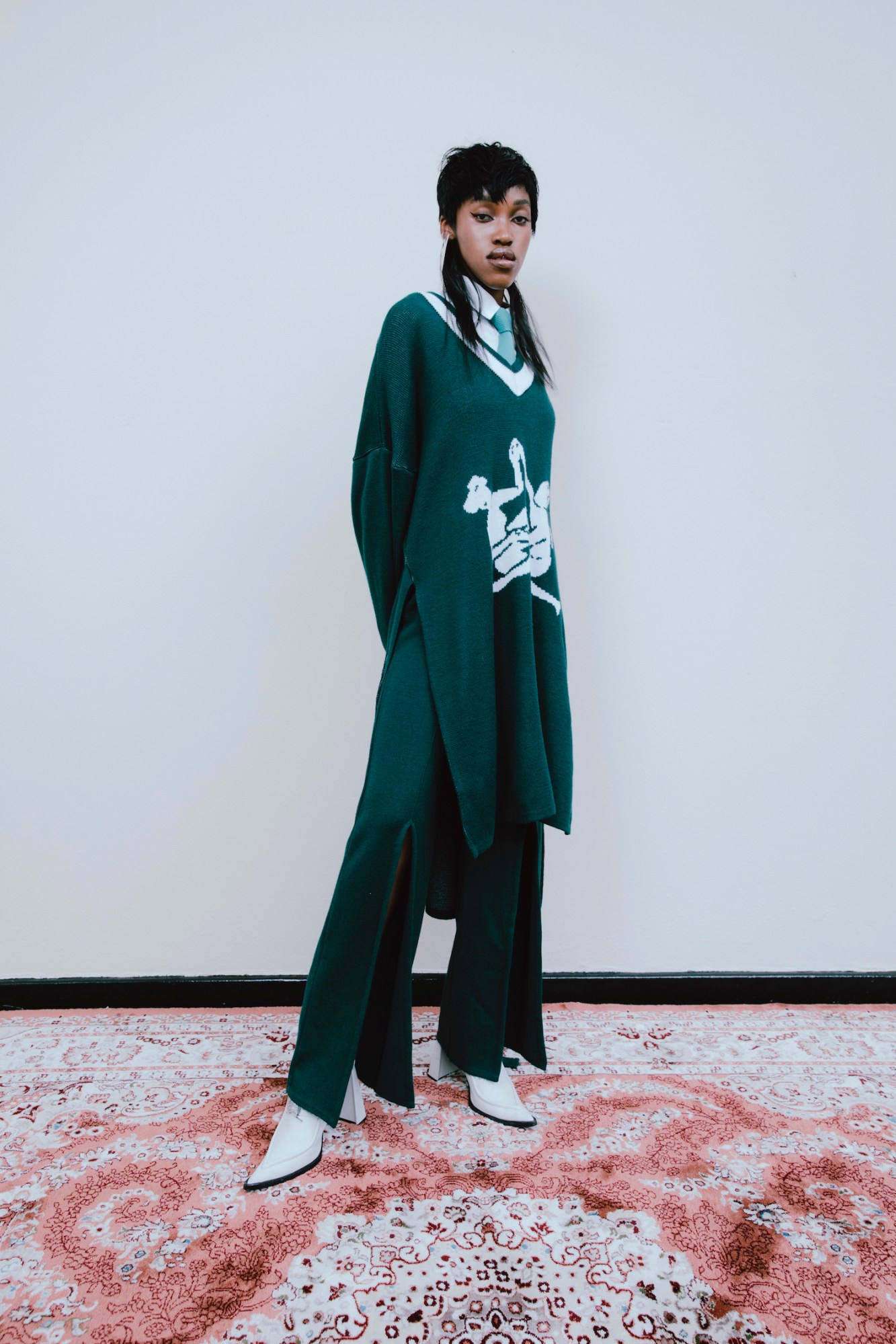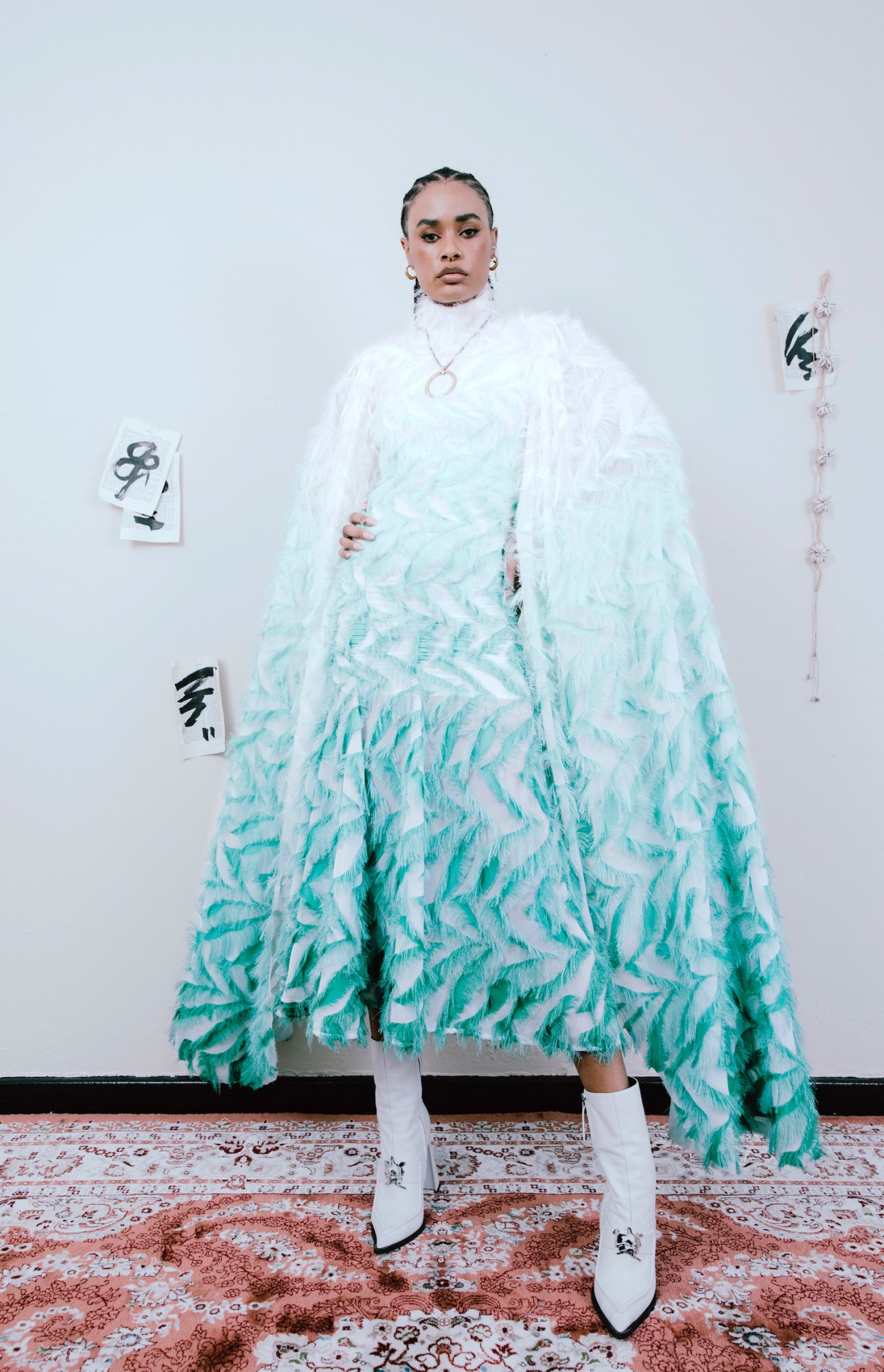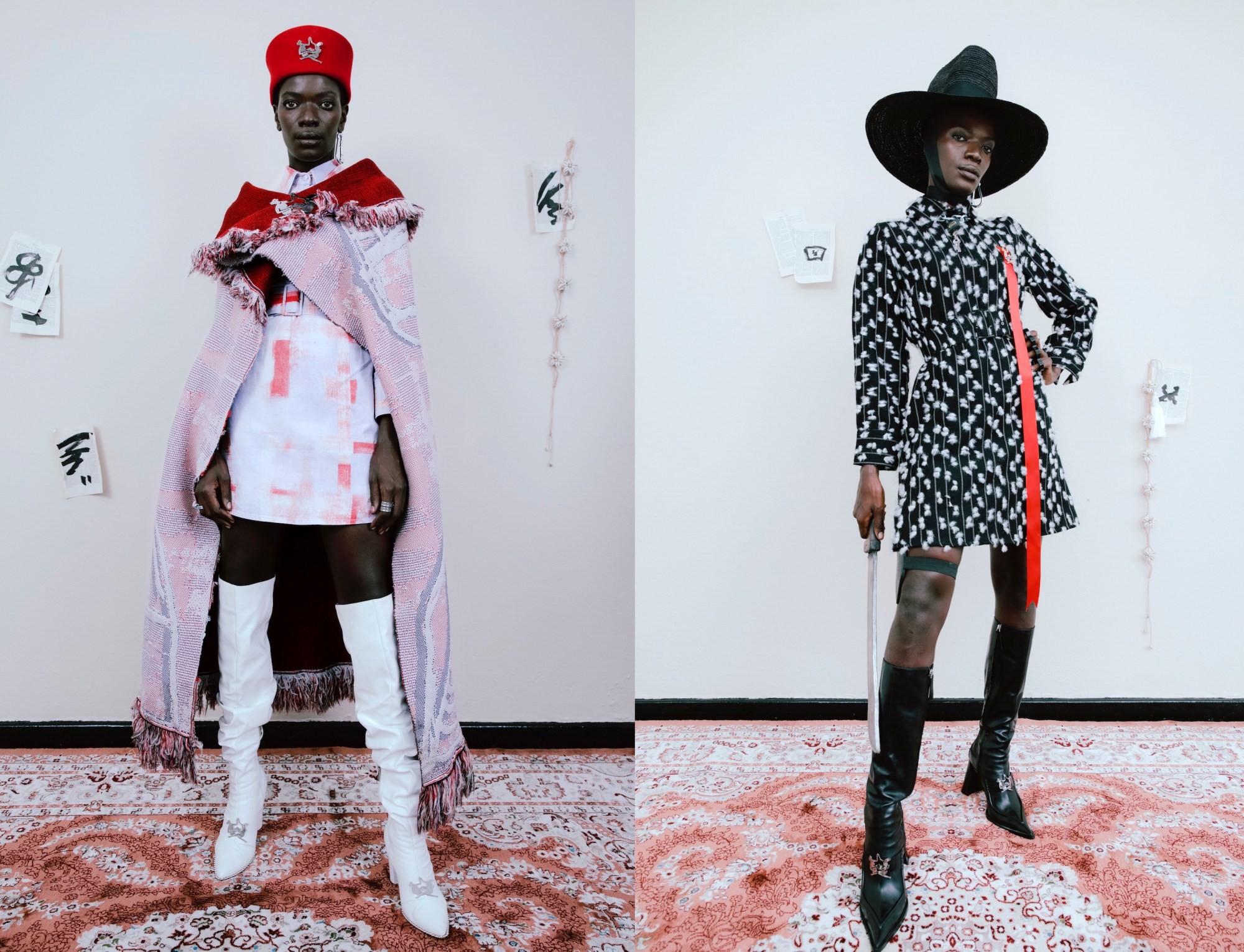South Africa’s youth, Thebe Magugu tells us, is currently in the midst of a collective spiritual awakening. ‘Aren’t we all though?’ you may retort, pointing to the pandemic-precipitated boom in horoscope memes and TikTok tarot for proof. Sure, we guess, but what Thebe’s talking about here is a little more deeply-rooted; it’s the product of a desire of the LVMH Prize-winning designer’s generation to reconnect with the nation’s indigenous spiritual practices.
“We’re seeing this departure from Christianity towards expressions of spirituality that are closer to home,” Thebe says, describing how this generational shift became the point of departure for ‘Alchemy’, the AW21 collection he presented yesterday on the Paris Fashion Week schedule. “I was very fascinated by the idea of exploring modernity through the lens of the indigenous,” he continues. “In Western thought, those two terms are usually separated, but with African knowledge systems, things are more intersectional; the two ideas coexist” and reinforce one another.
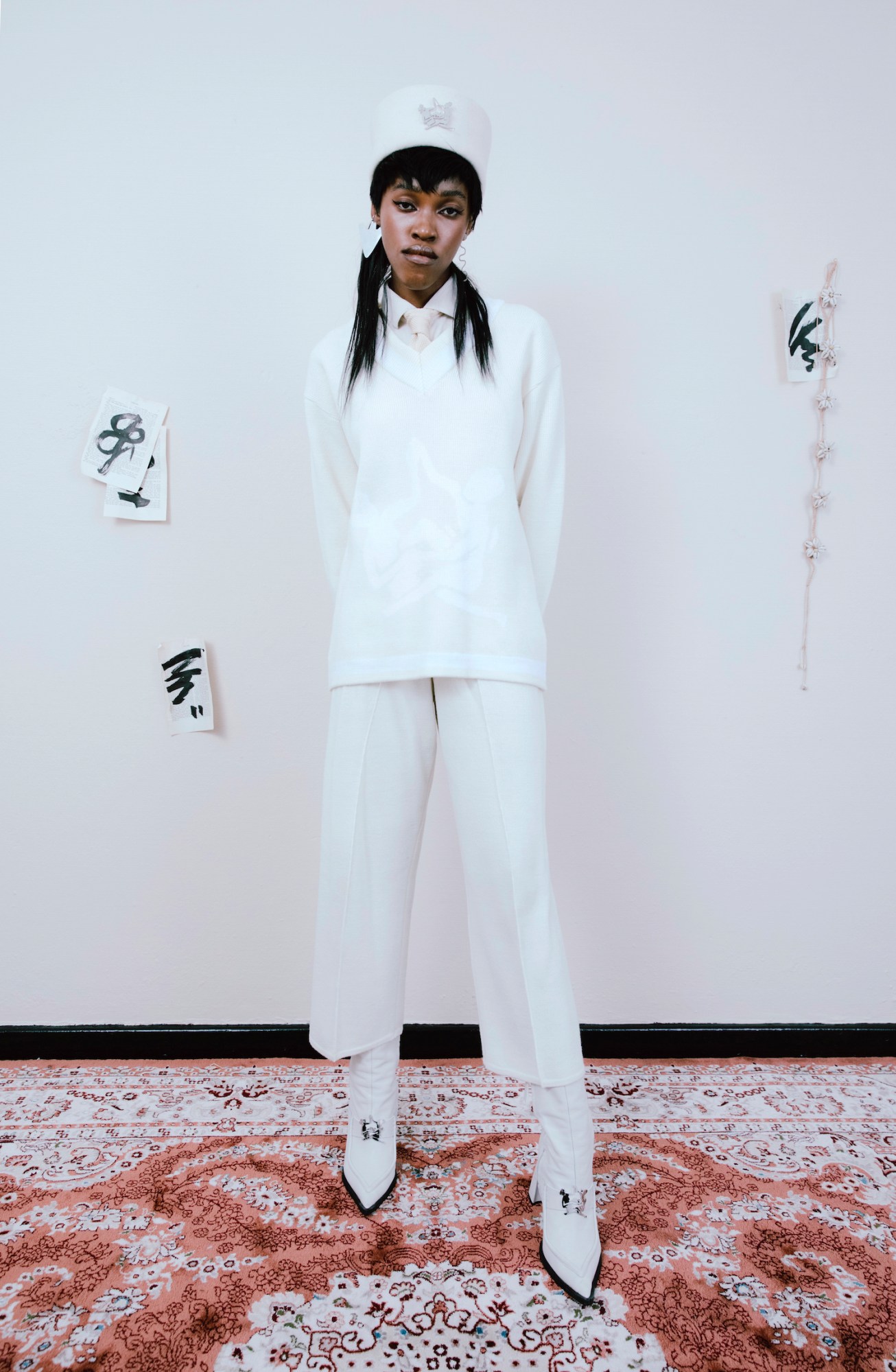
Living proof of that can be found in people like Noentla Khumalo, a Johannesburg-based stylist and traditional healer, and a friend of Thebe’s. “She recently received ‘the calling’, Thebe explains. “A very small percentage of people get it. It manifests as sort of a illness, and it’s basically a call for you to become a traditional healer — the more you ignore it, the sicker you get. When you finally accept it, you have to go and train under another healer in isolation for a few months in isolation.” On her return, she chose the medium of bones her means of divination. In any given session, she tips goat knuckles, an old police whistle, a pencil sharpener, seashells and red dice cubes out onto a straw mat with the question “What’s next?” in mind, with the positions of each object mapping out an ancestral response. These constellations were then photographed by Thebe, and abstracted to create a hodgepodge pastel print seen on collared dresses and wide cuffed trousers; elsewhere, the puckered detailing on the back of a knitted peak-lapelled jacket mimics the scarification patterns seen on the healers of certain Central African peoples, doubling as Braille for: “What you do for your ancestors, your children will do unto you”.
The reverence with which Thebe has translated his subject matter to garments also extends to the very cloth they’re cut from. “As I was dealing with traditional healers and African spirituality,” he says, it was important to lean “heavily on the idea of the natural, the hand-touched and hand-worked”. Accordingly, he worked with a global network of textile artisans, like Larisa Don, an eco-printmaker based in rural KwaZulu-Natal. She developed a series of botanical transfers, pounding cannabis and imphepho — a plant that “traditional healers use before they communicate with the ancestors,” Thebe says — into snow-white merino wools by hand. And in Japan, the revered Mr. Adachi-San hand-wove a black wool suiting fabric, flecked with white rayon tufts, and cut into a prim minidress.
It’s a collection that would convert even the hardiest non-believers, though it’s greatest success isn’t in proselytising its audience. Rather, it’s in respectfully translating the sacred symbols of a rich, complex spiritual tradition into clothes that will appeal to anyone with even a fleeting interest in fashion — wherever they are in the world, and whatever their beliefs. If that isn’t modern-day alchemy, what is?
